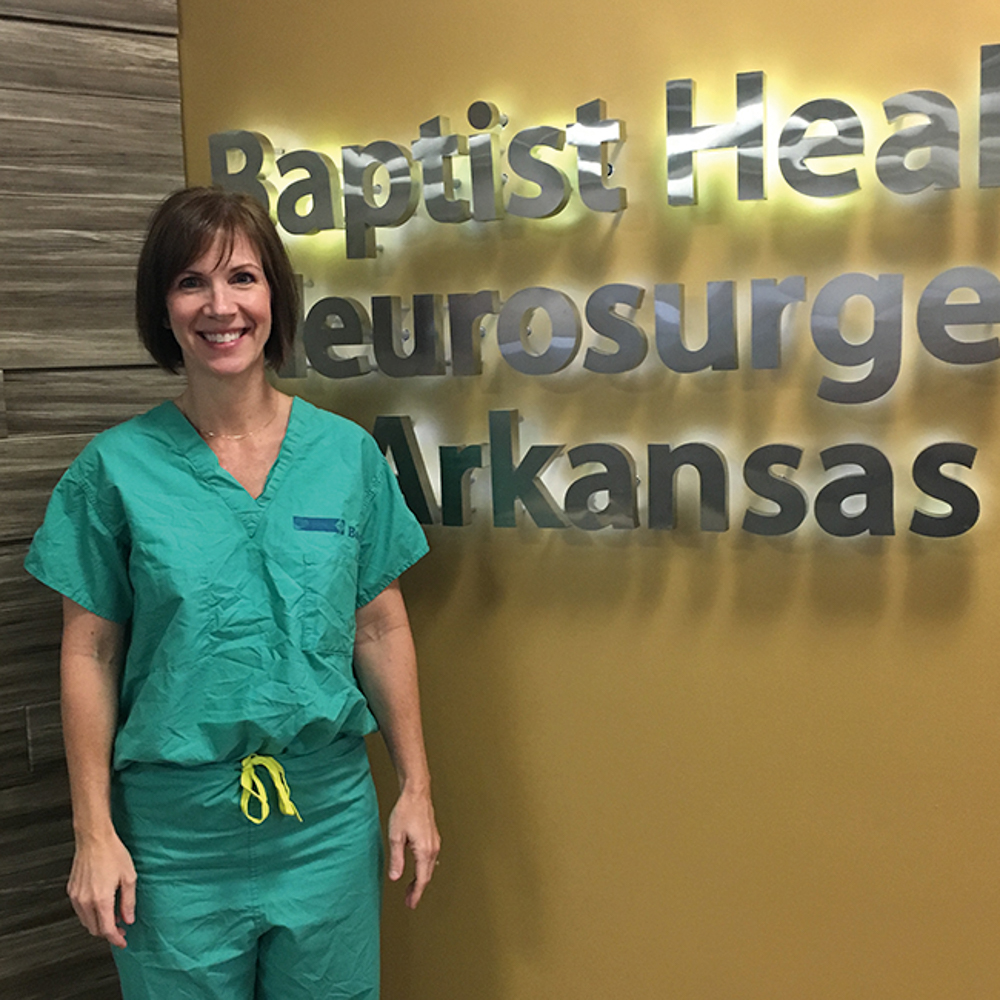By Dillon Holsonback

Southaven, Mississippi, native Rhonda Finnie (’02) received her undergraduate degree in economics after attending Lyon College from 1986-1992. Upon graduating, she originally thought she would like to work for the federal reserve bank, but after she and her husband got married and started a family, life took a different direction.
“In 1994 my son was diagnosed with a malignant brain stem tumor, and we spent a lot of time at Arkansas Children’s Hospital,” Finnie said. “Derek died when he was 3, but we became close with several of the staff and kept in touch with our neurosurgery nurses Sharon Aureli and Dena Carr Duckworth over the years.”
Inspired by the kindness of the nurses who worked with her family during this time, Finnie returned to school in 1999 to enroll in Harding’s B.S.N. program and today works in neurosurgery at Baptist Health in Little Rock, Arkansas.
“This is why I became a nurse, and now I work with Sharon in the stroke program at Baptist and continue to work with Tim Burson who was the resident neurosurgeon at the time.”
Finnie pursued her B.S.N. at Harding because she knew it was a high quality program, and she valued the mission it sought to uphold. According to Finnie, Harding’s faculty had high expectations for its students, and they were expected to incorporate what they learned in the classroom into their clinical experiences.
“Many of our patients and families were in emotional and spiritual turmoil,” Finnie said. “The ability to address spiritual needs helped us to be better caregivers.”
One of Finnie’s most memorable moments at Harding occurred after the 9/11 attacks in 2001. The faculty and staff impressed her with their reaction to the tragedy and how it caused them to examine their own preparedness.
“We had such excellent faculty who were excellent clinicians themselves,” Finnie said. “They realized that we didn’t know enough about disasters and how to respond. We did an entire community assessment for disaster, whether it was tornados, floods, earthquakes and more. The next semester during our critical care rotation a campus-wide disaster drill was organized. We had to utilize all of our nursing skills and judgment in triaging patients and treating them. The faculty saw an opportunity, and they were flexible enough to organize this in a very short period of time.”
Finnie shared that nursing is a very demanding profession both physically, mentally and spiritually at times.
“We are here to care for others in the most vulnerable times, and sometimes the only way we can continue to do that is to realize we are here for such a short time,” Finnie said. “By connecting with families on a spiritual level, we can help the patient and family toward recovery or toward a peaceful, comfortable passing from this life into the next.”
Finnie mentioned many professors at Harding who played a significant role in her education and helped shape her approach to nursing.
“Da’Lynn Clayton taught our pediatrics rotation,” Finnie said. “I learned more about emotional and spiritual awareness from that rotation. I’m sure that her work with children, many of whom cannot verbalize their needs, created this enhanced sense, but it certainly has become very useful as I work with adults who also cannot always verbalize their needs.”
Finnie felt the education she received at Harding prepared her to enter the profession and function at a high level as a new nurse.
“This level of excellence is well known. People want Harding graduates,” Finnie said. “The opportunities for nursing students in the mission field are unique to Harding.”